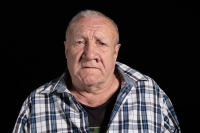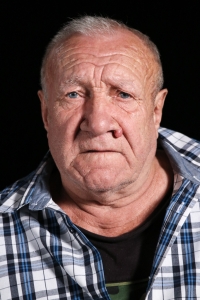Dad took a bag of flour, rags and one box, I slept in that in Baragan

Download image
Josef Kobau was born on 26 August 1949 in the Czech village of Eibentál (Eibenthal) in Romanian Banat. His father completed his military service during the Second World War and when Romania signed the Tripartite Pact, he was enlisted to join Nazi military units and sent to the front. After returning from the war, he married a Czech girl and they had a son Josef. In June of 1951 they were deported to the inhospitable region of Baragan, together with other families from Eibenthal. The family was to be settled in the area of the village of Însurăței, from where they were subsequently moved to the mining town of Comănești, where the father worked in the coal mines. The Romanian Ministry of the Interior only decided to allow them to return at the end of December 1955. At the time of their expulsion, the family property had been stolen. After coming back home, they lived in the mining colony of Baia Nouă (Ujbányje), where the witness completed four grades of Romanian school, followed by three more years in Eibenthal. He subsequently learned to be a lathe operator and returned to his place of birth, where he serviced the trucks hauling the mined coal to the Danube. He later became a managerial employee, which was also why he joined the Romanian Communist Party. After 1990 he was financially compensated for his deportation to Baragan and is also a member of the organisation that brings together and represents the victims. The witness is currently living in Eibenthal (September 2022).

